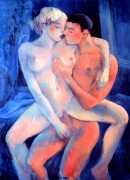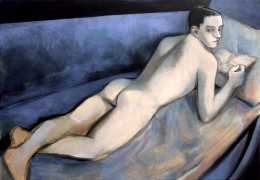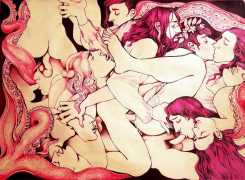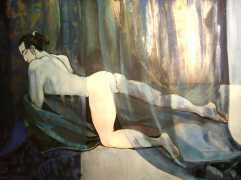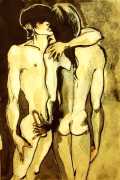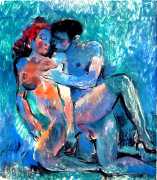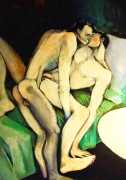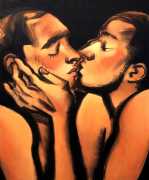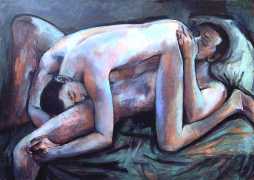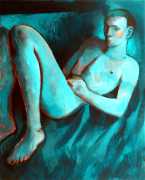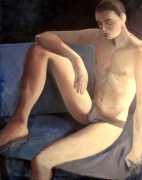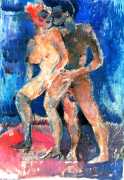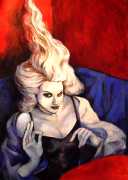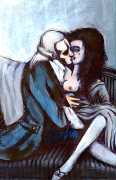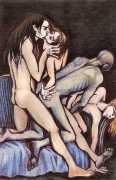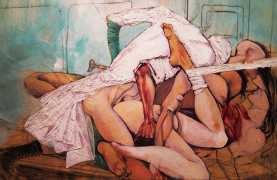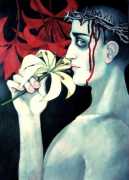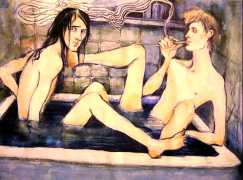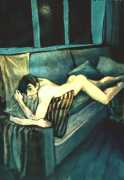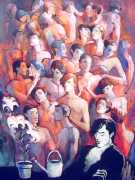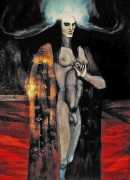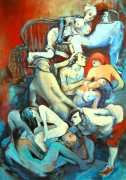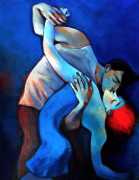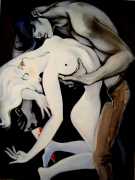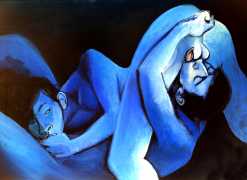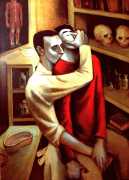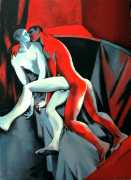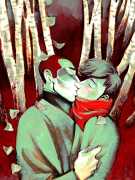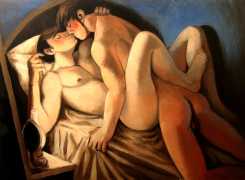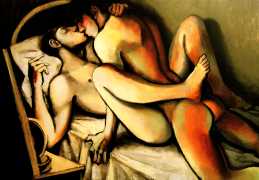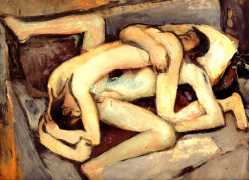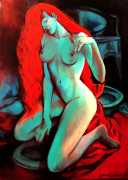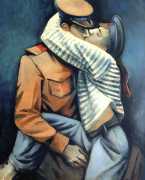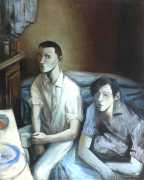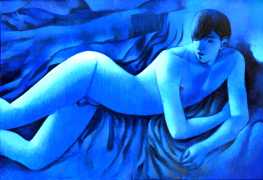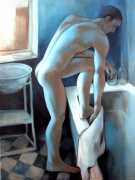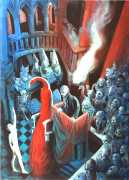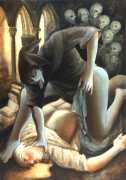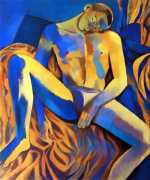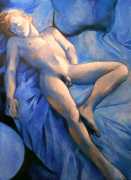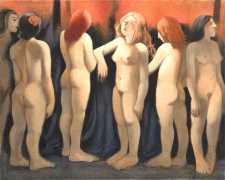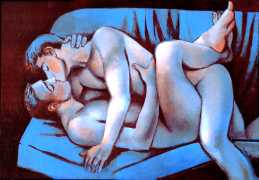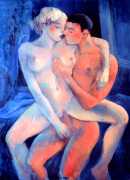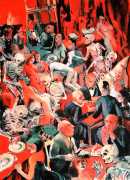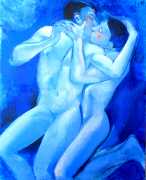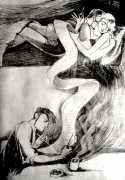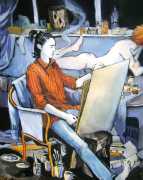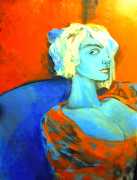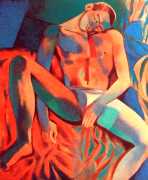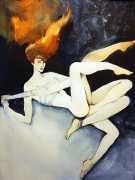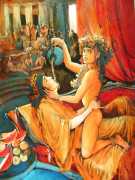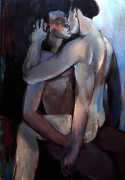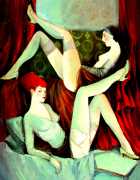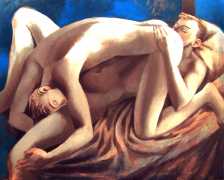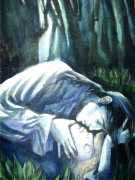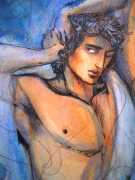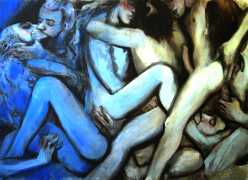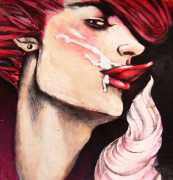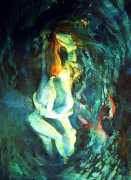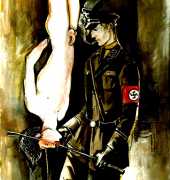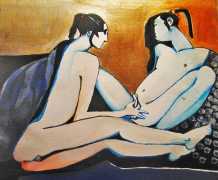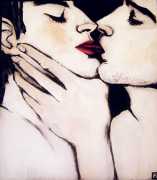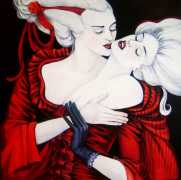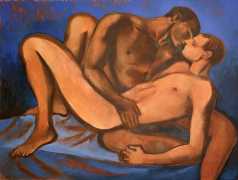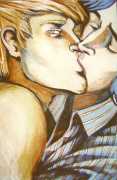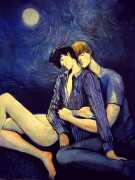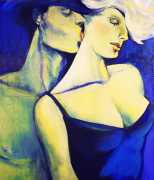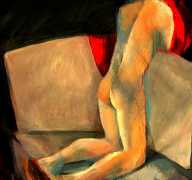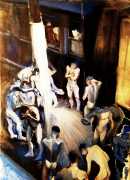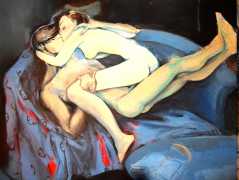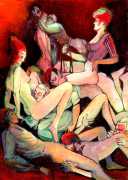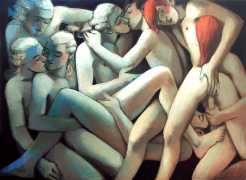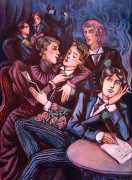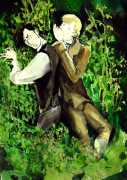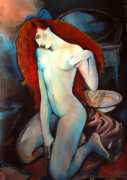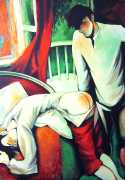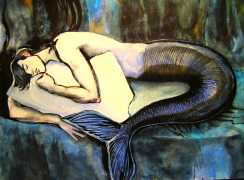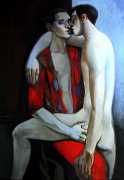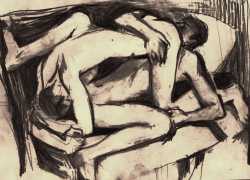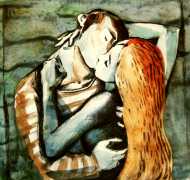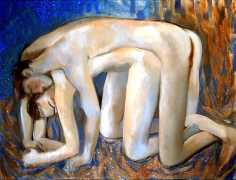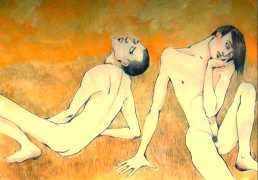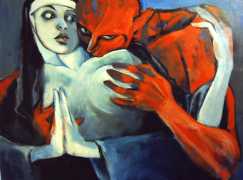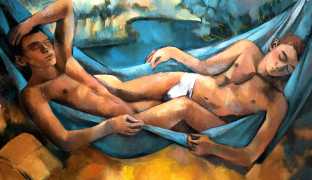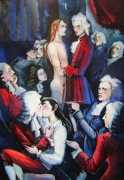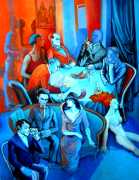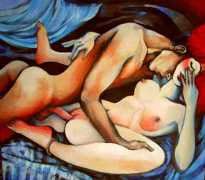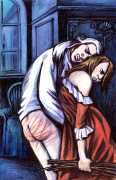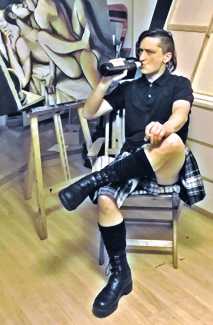 ‘I’m obsessed with sex!’ Polish artist Juliusz Lewandowski explained emphatically to a recent interviewer, before informing them that he was not born physically male. When asked if his gender identity held him back, he continued, ‘I was afraid that nobody would accept me, but I don’t want to be closed into one community. For me it’s important to mix with other people and show then that we are happy and noble and that we can do some interesting stuff.’
‘I’m obsessed with sex!’ Polish artist Juliusz Lewandowski explained emphatically to a recent interviewer, before informing them that he was not born physically male. When asked if his gender identity held him back, he continued, ‘I was afraid that nobody would accept me, but I don’t want to be closed into one community. For me it’s important to mix with other people and show then that we are happy and noble and that we can do some interesting stuff.’
As an openly queer trans painter, Lewandowski has succeeded in creating a body of work in which naked lovers of every gender intertwine and embrace one another in an intimate encounter of shared desire. An ex-girlfriend, a trans woman, was his long-time muse, and it is clear that many of the faces in his colourful paintings are indeed variations of the same person, a beautiful woman with just the slightest hint of a male past.
In November 2019 Lewandowski was interviewed by the British magazine Freedom News; here we offer some of his answers from that interview:
What is your situation at the moment?
I’m self-taught painter based in Warsaw, and have made my living like this since 2012. Before that I was a worker. I live in my studio, so my situation isn’t bad, and certainly much better than in the past.
How do you identify in terms of gender and sexuality?
Honestly, in terms of my identity, gender and sexuality are important to me, but not as much as being a communist. My interests in art, philosophy and politics are more important. Whether I’m a man or a woman, bisexual, gay, or transsexual, isn’t so important for me, but gender equality is. I don’t believe that any real change is possible without a change of social conventions, especially patriarchy.
Many of your works deal with eroticism, sexuality and queerness. Why have you chosen these subjects?
First to show that gay erotica is the same as any other erotic art, and, as Klimt said, ‘all art is erotic’. Second, I think that eroticism is very important but often people tend to neglect it. It’s sad that many don’t know where the line is between erotic art and porn. And third, I want to create a canon of beauty that is not particularly connected with the male or female body. In fact many heterosexual people love my gay paintings.
Many of your paintings reference workers’ movements, resistance to capitalism, and a critique of high society. Can you tell us why?
Capitalism gave me chronic illness – both my hands are affected by repetitive strain injury and inflammation of the elbow nerves due to working over 65 hours a week. Capitalism made me unable to work with my hands any more, and I spent three years as a homeless guy in the squats of London. The fact that I managed to get out from those bad conditions in life was only a question of luck. Many people in my situation wouldn’t have had any chance to change it. That’s why I cannot identify myself as middle class, regardless of my current, quite good situation. I think that it is my duty as an artist to criticise society.
Can you tell us about the situation in Poland right now?
When I came back to Poland in 2012 I knew what was coming here – and now it is even worse, because here there is no leftist party. You can only choose between a few right-wing ones. People are disappointed. After thirty years of capitalism this country is a ruin, what I can say?
On the streets at an recent antifascist protest we consistently had the word ‘faggot’ screamed at us, highlighting the difference between free speech and hate speech. As in so many places across the world, Poland is currently struggling with a surge of populism and conservatism. Having undergone a rapid transition from Soviet domination to capitalist ‘liberation’, it faces an uncertain future for women and LGBT+ people under the looming influence of Catholicism and authoritarianism.
My friends and I work hard to create some sort of antifascist resistance, including through our art. I know it’s late, but right now we have to fight like hell.
Juliusz Lewandowski, who also uses the nom d’artiste Martwy (Polish for ‘dead’, ‘lifeless’, ‘still’), can be found online in various places. His Facebook page is here, and his Instagram account here. His work can also be found at Deviant Art, here, and Saatchi Art, here.
We would like to thank our Russian friend Yuri for suggesting the inclusion of this artist.

